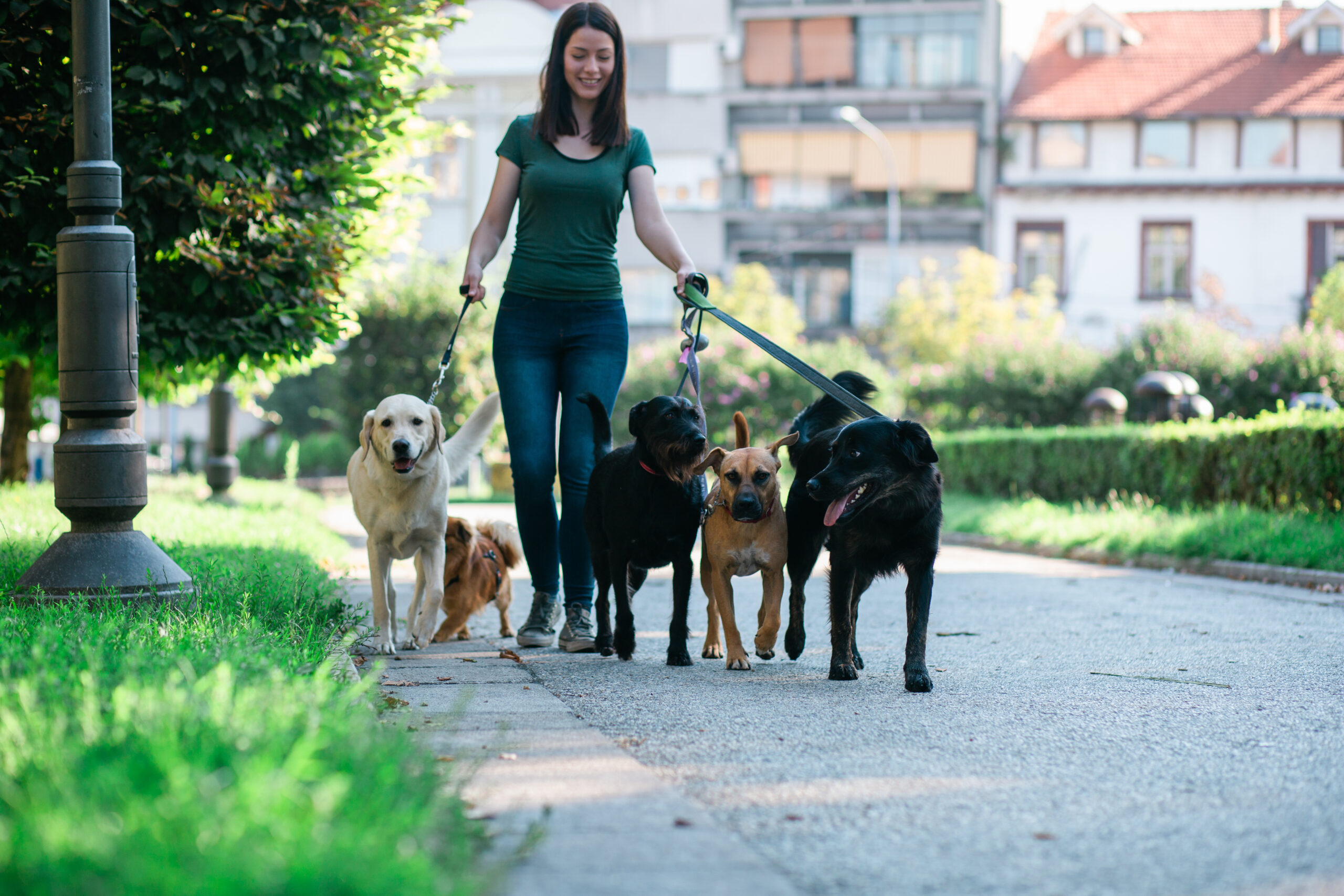Do you want to donate your eggs but worry your anxiety could disqualify you from the program?
If so, you’re not alone. (And you likely won’t be disqualified – keep reading).
According to the CDC’s 2019 data, women aged 18-29 experienced more mild, moderate or severe anxiety than any other age group or gender. That means of all adults in the U.S., young women are the most vulnerable to experiencing anxiety.
So what does this have to do with egg donation?
Well, if you compare those peak years of anxiety for women with the age eligibility for Ovatures egg donors, which is between 21 and 31 years old, you’ll notice a lot of overlap. On top of that, another key eligibility requirement for donors is a clean bill of mental health – in other words, that neither the prospective donor, nor her family (including grandparents, aunts, uncles and cousins) has a history of mental health conditions.
So this begs the question – if anxiety is so widespread among young women, and only young women without mental health conditions are encouraged to apply to become Ovatures egg donors, who exactly is eligible?
You might be wondering:
Is mild anxiety OK? (Yes). What about depression? (Unless it’s clinical depression, that should be fine too.) Bipolar Disorder? (That would qualify as a serious mental health condition, and those applicants would not be accepted into the program). Schizophrenia? (That’s also a serious condition that would preclude acceptance).
That was the CliffsNotes summary above – but there’s a lot more to say, since mental health can be a very complex gray area. Let’s dive into the details.
But first, an important note on why women without serious mental health conditions are prioritized for egg donation: the main reason not to donate if you have a serious mental health condition is because the medications used for egg donation can increase emotional lability, and cause a worsening of an underlying condition. Additionally, because egg recipients want to make embryos with eggs that have the least genetic risk (mental illness has a strong genetic component), donors without serious mental health conditions are accepted into the program. In other words, Ovatures and egg donation clinics are not discriminating against women with mental health conditions; rather, we are conveying the desires of our recipients for eggs that are as healthy as possible, and trying to safeguard the emotional health of our donors.
So what is a serious mental health condition and what isn’t? Read on.
I have anxiety – can I apply to be an egg donor with Ovatures?
The simple answer is probably. Unless you have severe anxiety that interferes with your life, causes frequent panic attacks and is uncontrollable, your anxiety will likely not disqualify you from donating your eggs. Anxiety is a tricky one, because it’s so common, especially, as mentioned above, in young women, but the key here really is the severity of the anxiety, whether there is family history of that anxiety, and whether it’s persistent, damaging and occurs for no reason at all.
Again, the anxiety continuum is wide and every person is different, but in general, it’s normal to experience anxiety during stressful times, such as the loss of a relationship, a sudden change in employment, a health scare, before a big test or presentation, on a plane ride and for a variety of other reasons that are unique to every person.
What is more concerning is Generalized Anxiety Disorder (which can also range from mild to severe), where you can feel panic, doom, fear or phobia about ordinary things, constantly worry about your health, or simply focus on the negative and go down a rabbit hole that puts you in a dark, fearful place for a long time. On top of that, people with severe anxiety may suffer from unpleasant physical symptoms, like a racing heartbeat, sweating and trembling, and can have trouble sleeping. This type of anxiety, especially if it’s long lasting and persistent, and gets in the way of a person’s life, could be a concern for egg donation due to its hereditary component.
Put simply, if you get anxious after three cups of coffee during a stressful day at work, your anxiety won’t be a problem for egg donation. But if you are on medication to manage your anxiety and still can’t seem to get a handle on it, that condition could prevent you from donating.
I have depression – can I apply?
At the risk of sounding like a broken record, the answer is probably. Again, it totally depends on how serious your depression is.
If you experience depression from time to time, ‘get depressed’ or experience a sad mood or a depressive episode once or twice a month, that is normal and will not disqualify you from becoming an egg donor or applying to donate your eggs. Or, for example, if you experience an extended period of sadness, say, lasting six months following the death of a loved one, that is also understandable. Or if you cry for one week straight following a particularly hard break up, or feel down for a while after you didn’t get into the college of your dreams, that’s normal and would qualify as a depressive episode, nothing more.
What is more concerning is ‘having depression,’ or being diagnosed with clinical depression, also known as Major Depressive Disorder (MDD). This condition is marked by having persistently depressed moods, losing interest and joy in daily activities, having trouble getting out of bed or completing tasks, eating too little or too much, engaging in risk-taking and self-harm, and have suicidal thoughts. These symptoms may get better from time to time, but they often recur and repeat, becoming the status quo.
MDD is often best treated with psychotherapy, medication and lifestyle change. Because MDD, like many mental health conditions, has a genetic component, and can be passed onto offspring, women with MDD don’t often become egg donors.
I have bipolar disorder – can I apply?
Bipolar disorder is a mental health condition that, while manageable with medication and counseling, has a genetic component and will not allow a woman to donate her eggs. As its name suggests, bipolar is marked by moods that are polar opposites, from one extreme to another. People with this condition can experience very high highs (known as mania, or being ‘manic’), where they are euphoric, energetic and highly productive, and very low lows (known as depressive episodes), where they have trouble getting out of bed and experience feelings of hopelessness. These mood swings can occur often or rarely, and vary from person to person. Bipolar can be diagnosed at any point in a person’s life, but it’s most often diagnosed in in the late teens or early 20s.
I have schizophrenia – can I apply?
Because schizophrenia is a serious mental health condition that likely has a genetic component (the root cause of the disease is not well understood), women with schizophrenia are not ideal candidates for egg donation. People with schizophrenia have a disassociation from reality – in other words, they interpret the world and what is happening around them abnormally. Schizophrenics may experience hallucinations, have delusional thoughts and have trouble with communication and speech. The condition is often diagnosed during a person’s 20s, and is a lifelong disease that can, especially if not detected early and managed, severely damage a person’s quality of life.
I have a mental health condition, but I consider myself healthy in mind, body and spirit – can I apply?
Absolutely! And we love that attitude. We love it not just because it’s positive, but because it’s such a realistic portrait of self-care and mental health. Even though a large chunk of the global population contends with mental health issues – whether big or small – many of those people manage to control, manage, live happily with, and even overcome these issues with healthy habits and consistent effort. That’s why we wrote this blog – stress, worry and sadness affect all of us, but they don’t define us all.
Ultimately, you are the best judge of your own mental health, but if you’re not sure whether your specific situation is a problem or not, Ovatures can refer you to on-site mental health professionals who can do a simple assessment to determine whether you’d be a good fit. Actually, the mental health team is well experienced in screening Ovatures egg donor applicants, and accepts far more into the program than not.
Any other mental health related-things I should know?
Prospective donors should know that donating eggs is a powerful act of giving that can stir strong emotions in some women, both from a psychological and physical perspective.
Let’s start with the physical part. Medically, donating your eggs is a two-week process that involves 10 days of self-administered hormone injections followed by a short, minimally invasive surgical procedure. While donors get financially compensated for their time and effort, and the protocol is safe, donors who are overly nervous about needles or experience medical anxiety should consider their decision carefully.
Donating your eggs is also a big decision psychologically, mostly because of the ‘after’ part of the donation. If you are matched with a recipient, your eggs will likely go on to be fertilized, form an embryo, be implanted into your recipient’s uterus and result in a baby. And while it is unlikely that this baby, years later as an adult, will try to contact you, it’s not impossible (though Ovatures donors are always anonymous, and none of your adult photos or identifying details are shared with the recipient). Is that something you feel capable of dealing with? In addition, you may want to ask yourself how it makes you feel to know there may be children who are genetically related to you living in the same region.
For the vast majority of Ovatures egg donors, the above considerations, and their mental health status, are not a cause for concern. For these women, knowing they are giving the gift of life is a mood booster in and of itself.
How’s that for a pick me up?




